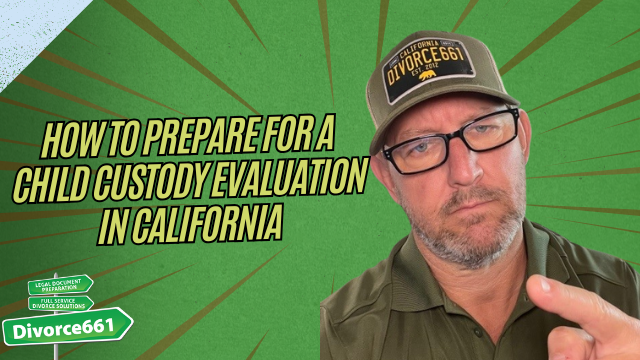How to Prepare for a Child Custody Evaluation in California
Facing a child custody evaluation can feel overwhelming, but with the right preparation you can walk in confident and focused on what matters most: your child. A custody evaluation is ordered when parents cannot agree on a custody plan. The evaluator is charged with assessing each parent’s home, parenting style, and involvement to determine what arrangement best serves the child’s wellbeing.
What a Custody Evaluation Actually Looks At
The primary goal of a custody evaluation is to identify what is in the best interest of the child. Evaluators look beyond headlines and finances. Common areas they examine include:
- Parenting style and daily routines
- Stability of each parent’s home environment
- Level of involvement in the child’s education, healthcare, and extracurricular activities
- Ability and willingness to co-parent and facilitate the child’s relationship with the other parent
Common Misconceptions
One persistent myth is that income or who makes more money will decide custody. That is not accurate. Courts and evaluators prioritize stability, consistent care, and active parenting over income alone. A Los Angeles client I worked with assumed finances would determine custody. In their case the court focused on who provided predictable routines, promoted the child’s relationships, and showed consistent involvement in the child’s life.
How to Prepare Effectively
Preparation is the difference between anxiety and confidence. Below are practical steps you can take to present yourself in the best light and help the evaluator see your commitment to your child’s wellbeing.
1. Know What to Expect
- Expect interviews with the evaluator, observations of interactions with your child, and possible home visits.
- Understand the evaluator is gathering information to make recommendations based on the child’s best interests, not to judge you personally.
2. Document Your Involvement
- Bring documentation that shows your involvement: school records, medical records, calendars of parenting time, photos of activities, and lists of childcare responsibilities.
- Keep a record of communications about scheduling, healthcare, and school matters to demonstrate consistent participation.
3. Demonstrate Stability
- Show the routines and structures you provide: regular bedtimes, meal routines, school drop-offs, homework help, and consistent caregiving arrangements.
- If your living situation has changed recently, be ready to explain how you maintain a stable environment for the child despite transitions.
4. Communicate Effectively During Interviews
- Be honest, concise, and child-focused. Evaluators value straightforward answers that reflect concern for the child’s needs.
- Avoid disparaging the other parent. Instead, emphasize your willingness to co-parent and facilitate the child’s relationship with them.
- Listen carefully and stay calm. Demonstrating emotional regulation is part of showing you can support your child’s stability.
5. Show Willingness to Co-Parent
Evaluators want to see parents who can cooperate for the child’s benefit. Be ready to describe past or planned strategies for shared decision making, conflict resolution, and consistent communication about the child’s health and schooling.
What to Bring to the Evaluation
- Identification and any court documents related to custody or visitation
- Child’s school and medical records
- Calendars or logs showing your parenting time and responsibilities
- Contact information for teachers, coaches, pediatricians, or other adults involved in the child’s life
- Any relevant communications that demonstrate cooperation or attempts to resolve issues
How This Helps Your Case
By focusing on the child’s needs, documenting your role, and demonstrating a willingness to co-parent, you help ensure the evaluation reflects your dedication. Stability, active involvement, and the ability to support the child’s relationships are the types of factors that carry weight with evaluators and the court.
Recap and Next Steps
In short:
- A custody evaluation assesses parenting style, home environment, and involvement to determine the child’s best interests.
- Income is not the deciding factor. Stability, active parenting, and co-parenting are prioritized.
- Prepare by documenting involvement, showing routines and stability, communicating calmly and clearly, and demonstrating a cooperative approach to parenting.
If you are preparing for a custody evaluation and want guidance tailored to your situation, schedule a free consultation at Divorce661.com. We can help you prepare, focus the evaluation on the child’s needs, and present your role as a dedicated, stable parent.
“It is not about who earns more, but about who provides a stable, nurturing environment.”

